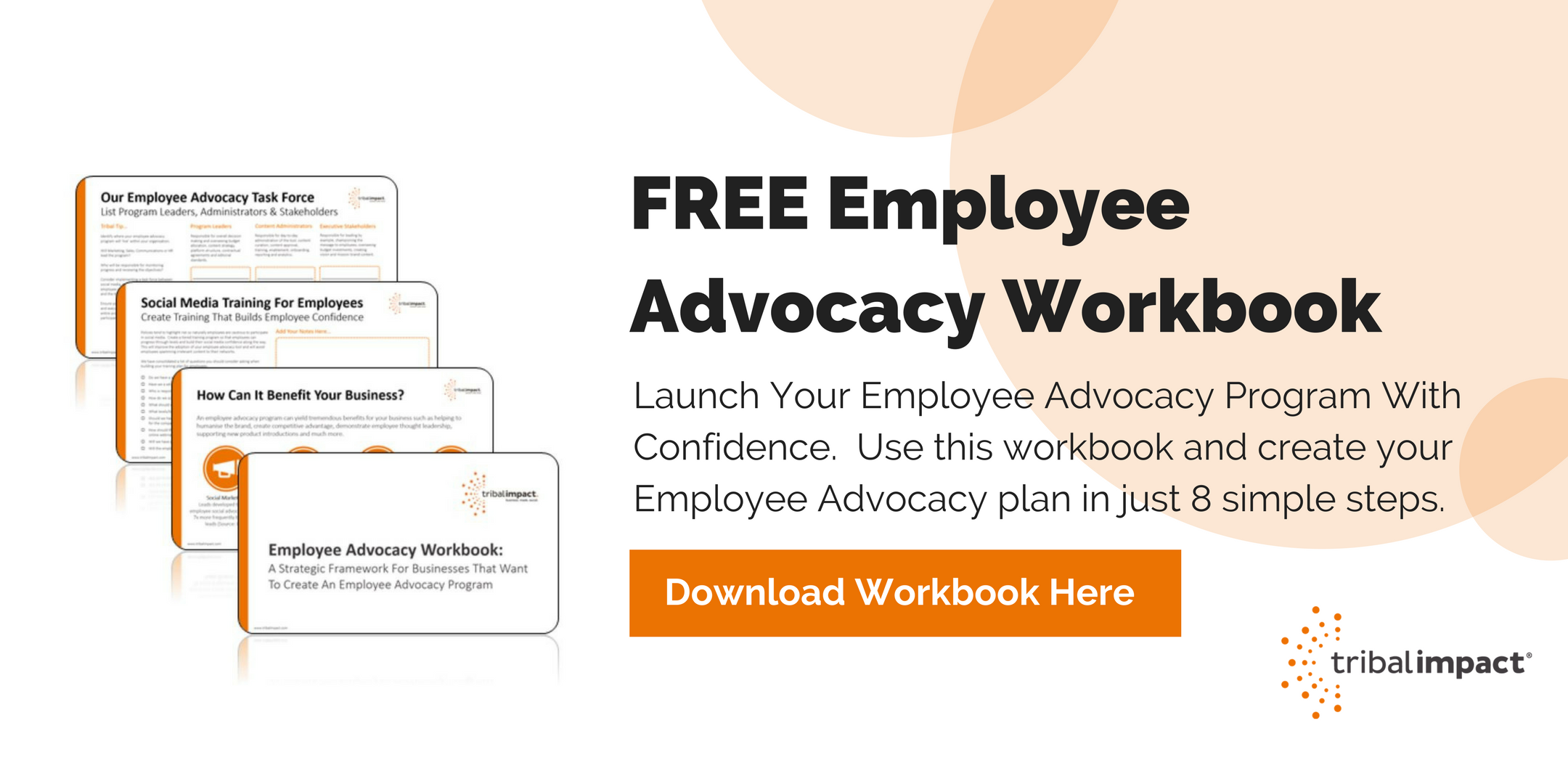 Happy New Year!
Happy New Year!
I can hardly believe that Christmas has come and gone and, like every year, I bought a bag of mixed nuts in shells and like every year, the walnuts and Brazil nuts are left. There’s just no easy way to tackle those nuts.
They are, in my opinion, the most difficult nuts to crack.
When it comes to business, there are different nuts to crack and some of the toughest challenges facing HR in 2016 include reputation management and bringing the HR function closer to core business.
The good news is that employee advocacy can support both of those priorities, often with a positive impact on the bottom line.
According to the Employees Rising study from WeberShandwick, social encouragement has an outsized impact on employer advocacy among employees. For example, employees with socially-encouraging employers are significantly more likely to help boost sales than employees whose employers aren't socially encouraging (72 percent vs. 48 percent, respectively).
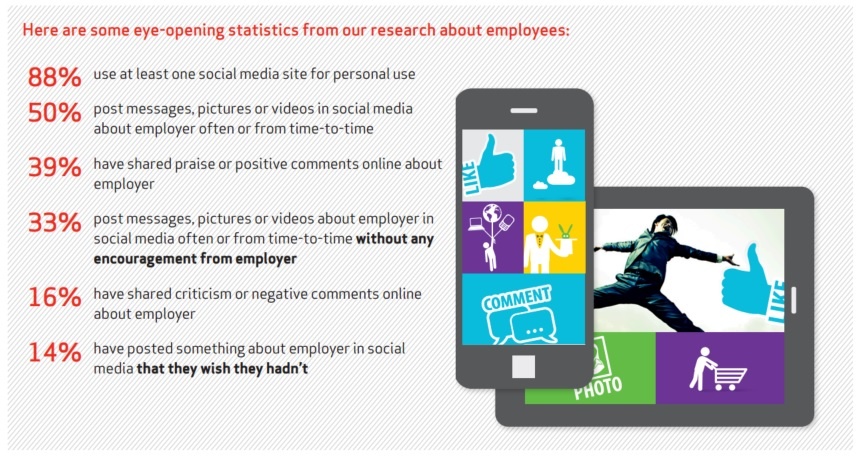
The same study suggests that over 50% of employees are already sharing content about their employer on social media.
However, there are several reasons why employees might be reluctant to become brand advocates on social media which is why I believe employee advocacy is going to be a tough nut to crack for many organisations in 2016.
Let’s go explore…
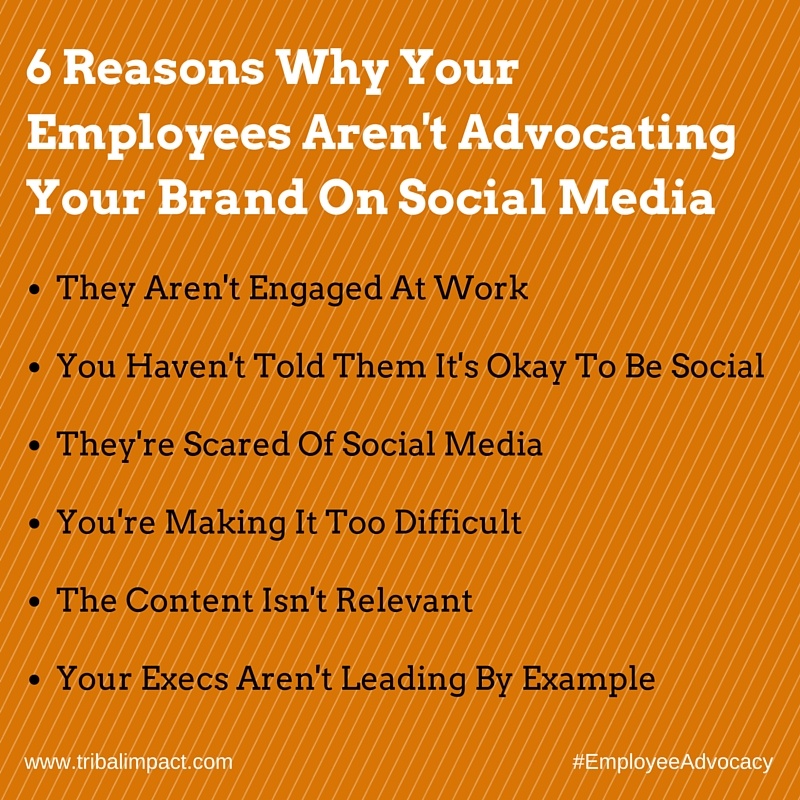
Your Employees Aren't Brand Advocates on Social Media Because They Are Not Engaged At Work
Fundamentally you need an engaged workforce for advocacy to be successful. Employees need to have trust and a connection with the company’s values at a basic level of engagement.
According to the CIPD Employee Outlook survey (2015), just 39% of UK employees are engaged in their work. The Weber Shankwick Employees Rising report found that only 42% of employees can describe to others what their employer does.
Engaged employees want to talk about your brand and the more employees advocate, the more connected and engaged they feel. That’s when you tap into top quality earned media potential.
I believe that magic happens when the values of the business match the values of the employee. In my experience, brand advocates are more likely to defend the brand, encourage a social culture across the business and become loyal fans even if they decide to move to their next role.
You Haven't Told Your Employees It's Okay To Use Social Networks
Pretty basic question but have you actually told employees it’s okay to build their professional brand online?
"The biggest fear holding employees back from social networking is the fear of saying something wrong…so they say nothing at all"
@sarahgoodall
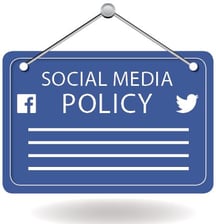 Be sure to have clear guidelines in place so employees know what is and isn’t acceptable on social media. Make sure they declare they work for the company (no underhanded pseudo identities for competitive intelligence) and be clear on the rules of engagement.
Be sure to have clear guidelines in place so employees know what is and isn’t acceptable on social media. Make sure they declare they work for the company (no underhanded pseudo identities for competitive intelligence) and be clear on the rules of engagement.
Finally, ensure the guidelines are well baked into the onboarding process.
Be clear from the start of the employee life-cycle that social media is encouraged within the policy and guidelines set out by the company.
Your Employees Are Scared Of Social Media
Even if you do tell employees it’s okay to start building a professional brand online, they may not know where to start.
A recent Social Media Today study found that 72% of respondents said that they have not received any type of social media training from their firm.
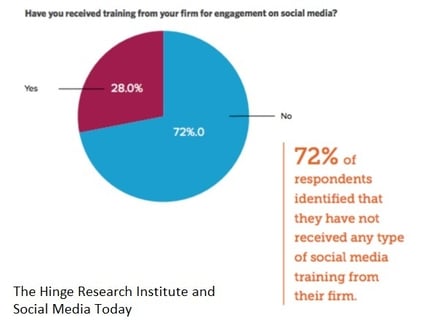
"Take the scary out of social and consider employee advocacy as an opportunity to build engagement within the workforce"
@sarahgoodall
Provide a social media training program for employees that guides wannabe ambassadors through the basics of building a social brand online. Help them to build their network, engage with others, share content and even start creating their own content.
Peer-to-peer content is becoming increasingly important from a marketing context. It’s trusted more than branded content. In the 2015 Edelman TrustBarometer global study 68% of consumers trust a company technical expert and 63% trust “a person like yourself” – 80% distrust business, government or both!
You're Making It Too Difficult
If you want your employees to share content, then make it easy.
Lose the hand crafted emails with all the Bit.ly links embedded asking employees to "copy and paste" updates into their LinkedIn profile.
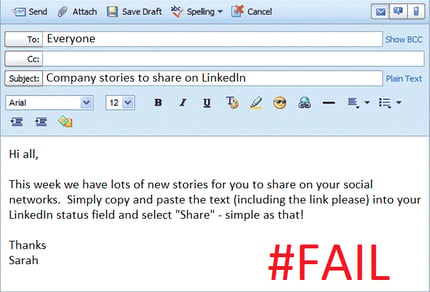
If you’re serious about employee advocacy and engaging with your workforce to become brand advocates on social media, invest in a tool that will help you amplify content in a scalable way with analytics to help support the business case.
There are many tools on the market so be sure to understand what you aim to achieve from the program.
- Do you want to support marketing campaigns?
- Improve employee engagement?
- Build influencers within the marketplace?
- Drive a referral recruitment strategy?
Don’t be dazzled by all the bells and whistles every tool has to offer. It needs to support your business objective.
The Content Isn't Relevant
Are you sharing a mix of branded and non-branded content?
If you’re just sharing promotional content that talks about nothing but how great your products are then your employees are unlikely to share it with their network.
Building the right content mix is essential. The heart of any employee advocacy strategy has to be ensure your employees become brand advocates on social media by curating and creating content that is relevant, timely and purposeful.
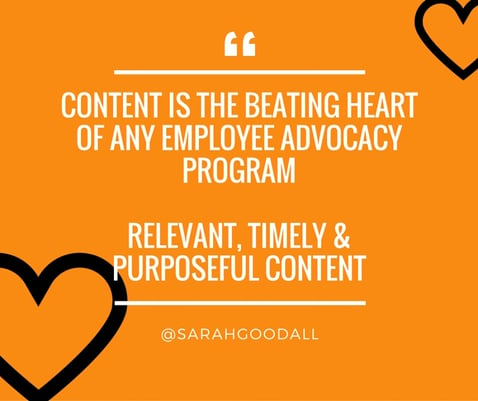
Do your research and listen to what your customers want to read and what your employees want to share.
Follow the 4-1-1 rule. Share 4 pieces of third party content to 1 piece of branded thought leadership content and 1 piece of straight promotional content.
According to Dynamic Signal and MindShare 74% of employees feel they’re missing out on company info and news. So, don’t think of your employee advocacy tool as a mechanism just for amplification of branded content. Think of it as a way of helping your employees stay top of their game and keeping them informed of company information.
Your Execs Aren't Leading By Example
Seeing is believing. A recent global study by WeberShankwick discovered that executives with social CEOs say their CEO’s social media presence makes them feel inspired (52%), technologically advanced (46%) and proud (41%)
You don’t need the whole leadership team tweeting 30 times a day but you do need a senior leader actively living the social business experience to truly understand the impact it can have.
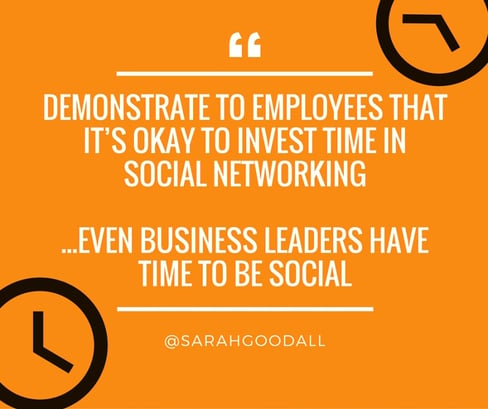
Demonstrate to employees that it’s okay to invest time in social media and show them that even business leaders have time to be social.
During my time at SAP Bill McDermott decided to take the ‘social’ leap of faith and wow, what a difference that made to the business. He connected to the SAP community in a way that he hadn’t done before.
Every employee had direct access to him via Twitter. He flattened the hierarchies, made himself accessible and basically inspired many to become social advocates for the brand.
Now over 3,800 SAP employees are tweeting and 25% of their tweets talk about the SAP brand (Source: SociaLook). Collectively, SAP employees have over 1M Twitter followers - that's 5.5x more followers than the official SAP branded channel!
In summary, treating employee advocacy like another marketing channel is the biggest mistake you can possibly make.
Why? Apart from the fact that it will probably fail, you may cause irreparable damage to the relationship between employer and employee.
Advocacy is more akin to Communications than Marketing in that it’s about (to quote Ted Rubin) return on relationships (#RonR).
What you give largely indicates what you get back which is why employee engagement and employee advocacy go together like Christmas pudding and brandy sauce (or brandy butter if you prefer). The perfect match.
Any other reasons that should be added to the list? Or better still, any advice on how to crack Brazil nuts and walnuts? :-)
Considering An Employee Advocacy Program In 2017?
If you’re considering an employee advocacy program in 2017 then feel free to reach out to me via Twitter or LinkedIn. I provide social media training for employees and consultancy for those businesses that want to become social but don’t know where to start!
Despite my love of social I do also own an email account so you can reach me there too!
Related Post: How to Build a List of Your Twitter Employee Advocates
